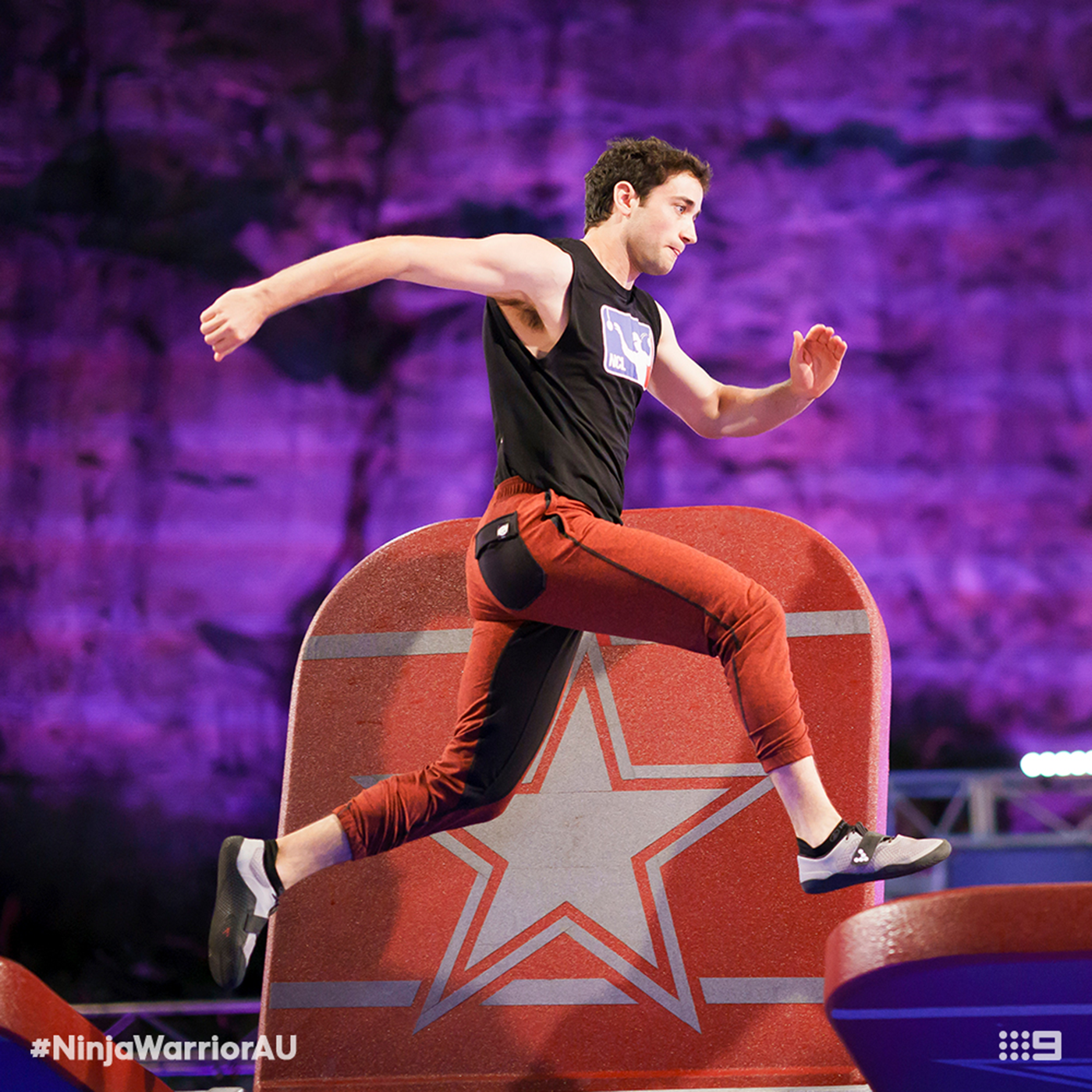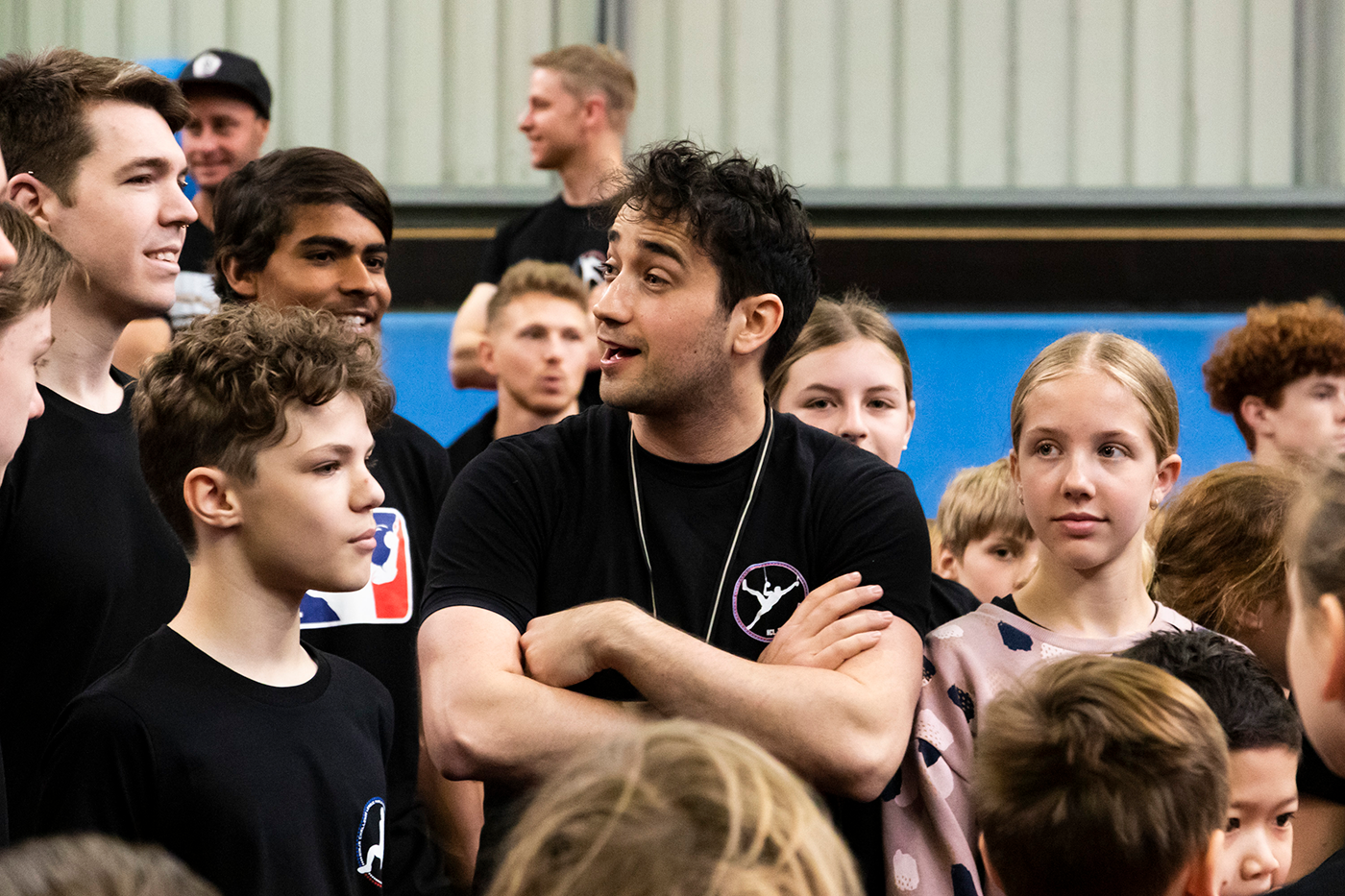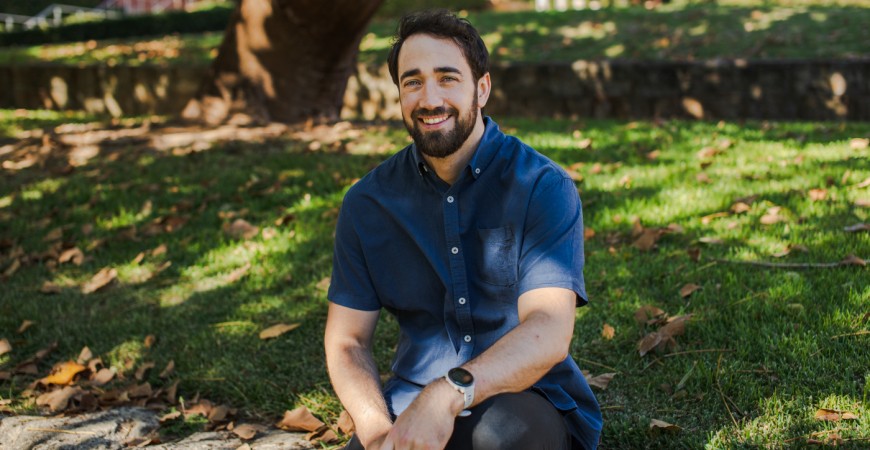Mark Ravi has often found himself drawn to helping others.
From significant milestones like pioneering the sport of ninja in Australia to the simple joy of organising engaging activities for the ReGen team, Mark is steadfast in his commitment to leaving the world a better place.
Now as ReGen Strategic’s senior communication advisor, Mark has infused the office with his fun work ethic over the past five years, playing a pivotal role in shaping the team culture.
Growing up in an Italian family in City Beach, Mark admits he didn’t really appreciate his surroundings when he was younger. But through his professional endeavours, Mark was able to travel the world and find a new love for his home city.
Mark began his first official job during his high school years at Muffin Break. Rather than seeing the leftover muffins thrown out after his shift, he would collect them in big bag and give them away at school the next morning.
Ever since this first role, Mark has been instrumental at cultivating a positive atmosphere in his workplaces.
“One thing that has been consistent throughout all my jobs, is I have been pretty good at bringing good vibes,” he says.
“I think if people are happier, they are more productive and it’s really important for people to enjoy coming to work and to not see it as a burdensome thing.”
While Mark excelled in English and history in school, he wasn’t sure what to do with his life after graduating high school. All he knew was that he wanted to help people.
This led him to study a Bachelor of Arts majoring in psychology at the University of Western Australia.
While studying, he also pursued his love of sports, coaching basketball at his old high school for five years and bringing home two championships.
“I really enjoyed that leadership role and trying to impart wisdom and knowledge onto those young impressionable people and minds,” he says.
“I enjoyed helping them become better people and players. I’d often try to get them to think about improvement instead of winning or losing."
Upon the completion of his Arts degree, Mark decided psychology wasn’t for him, but he still wanted to pursue a career that left an impact on others.
Although he initially considered physiotherapy, a recommendation from a friend led Mark to the world of journalism, studying a Graduate Diploma at Curtin University.
“Writing was always one of my strengths, but I had dismissed it because I didn’t know if it had the career prospects I was looking for,” he says.
“I saw it as another way to help people, I was providing a public service by reporting the truth and sharing people’s stories, which I think is always really important.”
Like many new journalism graduates, Mark took his first job out of university in the regions, moving down to Bunbury to work for the South Western Times.
“It was scary, I had lived in Perth my whole life, I hadn’t moved out of home yet and it was my first time living away,” he recalls.
“I got to learn a lot from really good people, and I got to appreciate life outside Perth.”
Mark never expected to find himself on the other side of the media. But, taking on an administration position at his brother’s ninja gym would soon lead to him being cast on the first two seasons of Australian Ninja Warrior on Channel Nine.

When Mark first entered the ninja world, the sport had yet to be established in Australia and the ability the shape an emerging community appealed to Mark.
“It’s very surreal seeing yourself on TV, getting your name called, being interviewed, and doing media on the other side,” he says.
“My time on the show in Australia had its ups and downs. I had a much better second year than I did my first year.
“I think I probably took it for granted a bit and thought I was going to be on the show for many years and after two seasons I was out and that’s more than most people got. I definitely could have done better but I am proud of what I did.
“My main thing is I improved a lot from one season to another and I hit a buzzer, which is something I’d always wanted to achieve.”
Mark’s ninja expertise has seen him compete in Vietnam and the United States. It also led him into entrepreneurship, creating his own business, the Ninja Challenge League (NCL).
Using his strong organisational skills, Mark grew the NCL from a local league to keep gym members engaged, to a national ninja competition with pathways to international competitions.
This journey has been Mark’s proudest professional achievement so far, growing the ninja sport to where it is today.
“I’ve somehow ended up being a reasonably influential figure in the ninja scene,” he says.
“There’s a responsibility that comes with that and I feel proud that I’ve been able to steer the sport in a healthy way within Australia.
“We are providing something that brings a lot of happiness and a lot of purpose to people’s lives.”

At the same time, Mark was studying a Master of Communication Management at Murdoch University – relishing the opportunity to apply what he was learning in a practical context.
“The time spent dealing with members at the gym or trying to talk down parents whose child had just been disqualified at a Ninja Challenge League competition really drove home the importance of clear communication,” he explains.
“No matter how irate someone is, if you communicate with them clearly and transparently, they usually get to a place where they understand and accept your point of view, even if they don’t always agree with it.”
Through the sport of ninja, Mark was met his now-wife Summer, who inspired him to get out of the gym scene and put his degree to work in the communications field at ReGen Strategic.
More than a year removed from completing his degree and three years removed from working as a journalist, Mark confesses to having a bit of self-doubt ahead of the interview.
“I was feeling really nervous about it, I wasn’t really sure if I was good enough, I had a bit of imposter syndrome,” he says.
“But they had me write a press release and I knew that was my chance to stand out.
“The fact they based it on something concrete, that they believed in my writing ability, was quite reassuring.”
Mark’s drive to help others has held true through his time at ReGen, working with clients to draw attention to important issues through the media. Mark also strives to have a positive impact on a more local scale – often the first to suggest a new game or activity to bring the ReGen team together.
“There’s a lot more to work than what your roles and responsibilities are,” he says.
“It’s where you spend a lot of your time and especially in the industry that we’re in, people are at the core of all of it and I think connecting with your co-workers is an important part in delivering good results.
“I think you need to find that balance in a workplace where the work gets done but the place has energy.
“If it was all business all the time, I think my life would be worse off for it and I think the company would be too.”
Growing up, Mark had dreams of living a ‘big’ life – as a professional athlete or a best-selling author of fantasy novels or even a successful webcomic artist. Looking to the future now, he recognises that his perspective has changed as he’s gotten older.
“I still want to leave the world better than I found it, but I know now that you don’t need to be famous or powerful to do that,” he says.
“You can have a ‘small’ life and still be impactful, whether it’s by being a good father, a supportive friend – or even just a fun colleague.”
 ReGen Strategic
ReGen Strategic